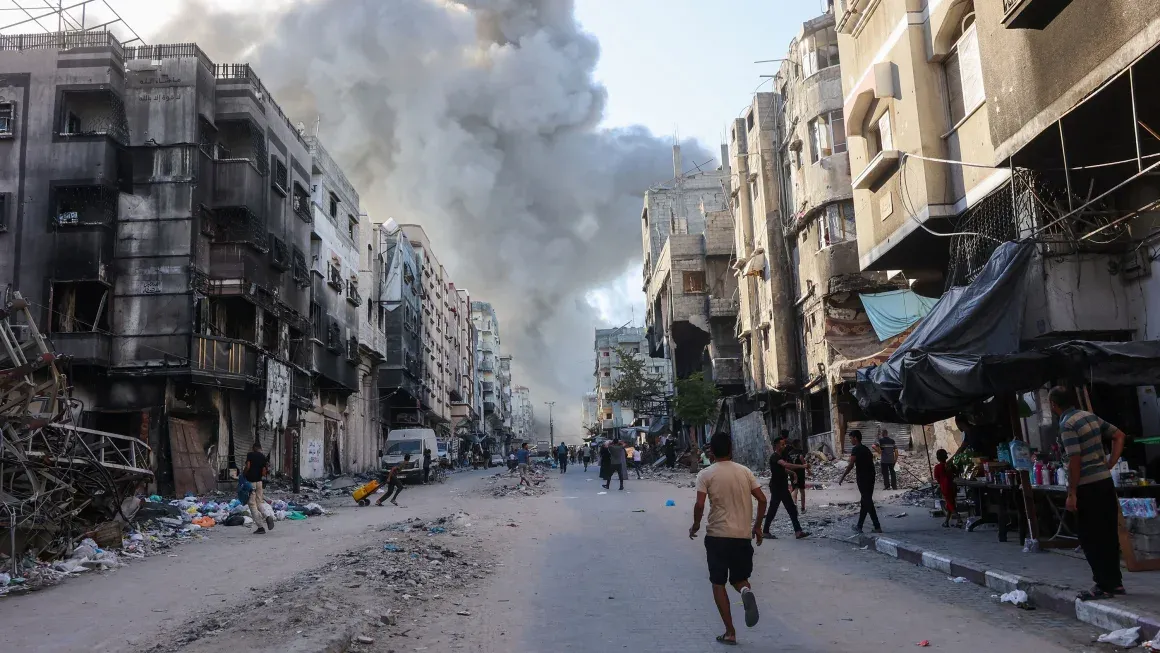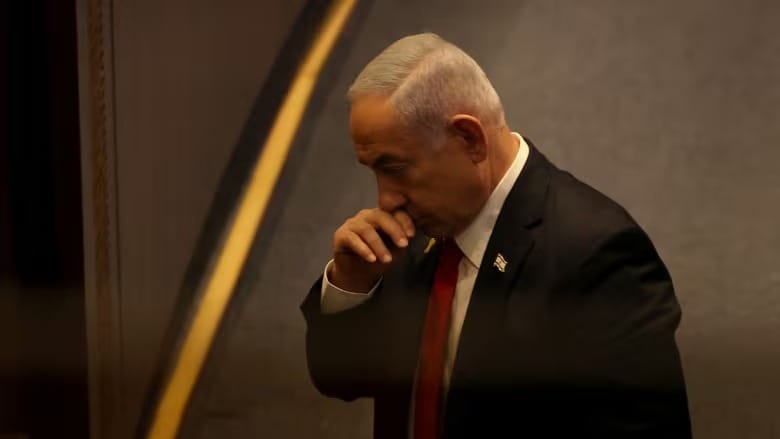Even if a Gaza ceasefire is agreed, Israel has made clear it reserves the right to resume the war with Hamas
This breakthrough represents a concession from Hamas, which had initially sought a seamless transition from a temporary pause to a permanent ceasefire, effectively ending the conflict.

After months of intense negotiations across multiple cities and levels, Israel and Hamas are edging closer to a ceasefire deal. However, even if an agreement is reached—a prospect still uncertain—it may only last a few weeks before the conflict in Gaza reignites.
As senior negotiators prepare for a weekend meeting in Cairo, several contentious issues remain unresolved in the proposed three-phase agreement. Israel has made it clear that any initial six-week truce may be temporary, as it is not prepared to commit to a permanent ceasefire.
"I am ready to do a partial deal, it is no secret, that will bring back some of the people," Israeli Prime Minister Benjamin Netanyahu told Israel’s Channel 14 in late June. "But we are committed to continuing the war after the pause to achieve the goal of destroying Hamas. I will not give up on this."
Israel's stance hasn't changed, and the fact that this position doesn't violate the proposed agreement marks a significant breakthrough for Israel in the negotiations. This approach allows both Israel and Hamas to potentially resume hostilities after the first six-week phase.
This breakthrough represents a concession from Hamas, which had initially sought a seamless transition from a temporary pause to a permanent ceasefire, effectively ending the conflict.
Riki Baruch, the sister-in-law of a deceased Israeli hostage who met with Netanyahu this week said that her key takeaway from the meeting was "the Prime Minister’s promise to defeat Hamas and to continue fighting until the last of the hostages returns."
Recognizing that this potential agreement wouldn’t guarantee an end to the conflict, U.S. officials have tempered their expectations. They are now focused on achieving a period of calm, even if temporary, hoping that sufficient pressure will build during the pause to prevent the resurgence of violence.
"What we’re focused on right now is getting a ceasefire deal in place, getting those hostages home, getting six weeks of calm," National Security Council spokesman John Kirby said last week. "That’s really what our goal is right now."
A ceasefire, even a temporary one, would be welcomed by many on both sides. Palestinians in Gaza, most of whom have been displaced, would gain a respite after nearly a year of continuous Israeli bombing, along with desperately needed aid. Israeli families would see the return of hostages or their remains after 10 long months.
Challenges Ahead
Despite the complexity of reaching this initial agreement, even greater challenges loom before Israel will agree to end the war permanently.
According to the proposed agreement, the permanent cessation of hostilities would begin in the second phase, during which Hamas would release all remaining hostages, and Israeli troops would withdraw from Gaza. The third phase would involve the start of reconstruction in Gaza and the return of the final remains of hostages.
When announcing the framework on May 31—agreed upon by both Hamas and Israel—President Joe Biden acknowledged that significant issues would remain to be negotiated after the temporary pause began. While Hamas had hoped the only remaining issue would be the number of Palestinian prisoners exchanged for Israeli hostages, Israel insisted that this topic—referred to as the "keys"—should be just one of several issues discussed during the transition from the first to the second phase.
As long as these discussions continue, Biden indicated, the ceasefire from the first phase would also continue beyond the six-week mark. However, despite the best efforts of mediators—the U.S., Egypt, and Qatar—the negotiations could fail, leading to a renewed conflict.
Hours after Biden outlined the May 31 framework, Netanyahu's office posted on X (formerly Twitter) that "Israel’s conditions for ending the war have not changed."
"The destruction of Hamas' military and governing capabilities, the freeing of all hostages, and ensuring that Gaza no longer poses a threat to Israel," he said.
Hamas' leader in Gaza, Yahya Sinwar, is believed to be alive despite Israeli efforts to locate him. Thousands of Hamas and Palestinian Islamic Jihad fighters remain active on the battlefield.
Only around 30 of the more than 100 remaining Israeli hostages are expected to be released by Hamas in the first part of a truce, and it remains unclear how many of them would be alive, according to sources familiar with the talks.
Negotiators are still debating how many and which Palestinian prisoners would be released in exchange, how many vetoes Israel would have over the names Hamas proposes of those serving longer sentences for more violent crimes, and where these prisoners would be released.
New Proposal for the Philadelphi Corridor
A key issue in the negotiations has been the presence of Israeli troops along the Egypt-Gaza border, known as the Philadelphi Corridor. Under the proposed agreement, IDF forces are expected to withdraw from densely populated areas, but Israel has argued that the border is not densely populated and is crucial for preventing weapons smuggling into Gaza.
On Wednesday, Netanyahu’s office denied reports that he had agreed to withdraw from the corridor.
"Achievement of all of [Israel’s] objectives for the war," a statement said, "requires securing the southern border."
Holding onto the Philadelphi Corridor during the six-week first phase, even with reduced forces, would provide Israel with greater military flexibility in future scenarios.
On Friday, it was reported that Israel had introduced a new proposal regarding the corridor, which Egypt is set to deliver to Hamas. The revised plan, submitted on Thursday, reduces the number of troops and military posts along the strategic border, according to an Israeli source familiar with the talks. Egyptian negotiators had rejected Israel’s previous proposal, calling it a non-starter.
Hamas’ response to the new proposal will be crucial in determining whether it sends negotiators to a planned summit in Cairo on Sunday. If Hamas attends, both sides could engage in direct negotiations, with each delegation occupying separate rooms and Egyptian and Qatari mediators shuttling between them.
The new proposal emerged from an hours-long meeting on Thursday between Netanyahu and his negotiating team, during which Netanyahu agreed to reduce troop levels. This meeting followed a conversation between Netanyahu and President Biden, who urged Netanyahu to show more flexibility on the Philadelphi Corridor.
Deep Divisions in Israeli Leadership
There are significant divisions within the Israeli security establishment and the Netanyahu government. Far-right members of Netanyahu’s cabinet have criticized any ceasefire agreement, while some security officials have accused Netanyahu of undermining the negotiations.
"The [Israeli] military would like a ceasefire now, a ceasefire that achieves objectives of getting hostages out," a senior American official said. "All issues outstanding are manageable. Not perfect but manageable."
CIA Director Bill Burns, the lead negotiator for the Biden administration, arrived in Cairo on Friday for the latest round of talks.
To bridge the remaining disagreements, the U.S., along with Qatar and Egypt, has put forward a proposal.
Earlier this week, Secretary of State Antony Blinken, who was visiting Israel, stated that Netanyahu had agreed to the proposal, while Hamas had not yet.
Hamas has recently accused Israel of altering the terms, while reports indicate that Netanyahu has shifted positions on several issues.
A senior Biden administration official characterized Israel’s changes as "clarifications," while U.S. officials have publicly maintained that a deal is close, with only "implementation" issues left to resolve.
However, many involved are less optimistic.
One source familiar with the talks described the situation as "near hopeless," noting that this week’s negotiations, following last week’s round in Doha, have failed to yield significant progress.
A major unknown is Hamas leader Sinwar's intentions: whether he seeks a reprieve for his fighters and the suffering Palestinians, or whether he is aiming for a larger regional conflict driven by Iran and Hezbollah that would further engulf Israel.
Whatever the outcome of the weekend’s talks, it appears that the most Israel is willing to consider at this point is 42 days of calm. After that, the future is uncertain.
"It’s easy to be pessimistic because it’s gone on a long time," the senior American official admitted. "They could have closed this many times but didn’t."





